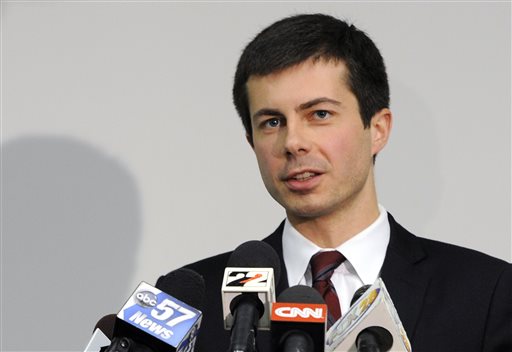To me, the most surprising developments in the Democratic presidential race have been the rise of South Bend Mayor Pete Buttigieg and the failure of Massachusetts Senator Elizabeth Warren’s campaign to catch hold. According to betting sites, Buttigieg is a six to one favorite to win the nomination, and Warren a distant 25 to one. There is a long way until the caucuses and primaries, but here are some guesses why Buttigieg has caught fire and a few thoughts why Warren’s flame has flickered.
Buttigieg’s rise is surprising because he has nothing like the usual qualifications to be president. He is the mayor of a lower-middle size Indiana town. In 1992, Larry Agran, the mayor of Irvine, which is twice the size of South Bend, ran for president. In spite of being widely touted by other mayors for his knowledge of urban problems and celebrated by environmental groups for his precocious understanding of global warming, Agran won a total of three delegates and was not invited to participate in any of the major candidate debates. By contrast, Buttigieg has already qualified for the debates, and is running third in some Iowa and New Hampshire polls.
What accounts for his popularity? I’ll list five factors. First, he is the smartest person in class. New York Magazine’s profile of him is titled, “Pete Buttigieg is a gay Harvard alum, fluent in Gramsci, Joyce, and Norwegian.” Being thought of as brilliant is a plus in elections. It helped John F. Kennedy in 1960 and Barack Obama in 2008. It contributed to the rise of Emmanuel Macron in France and is probably a factor in the popularity of super-reactionary Thierry Baudet in Holland who touts himself “the most important intellectual in the Netherlands.”
Second, Buttigieg’s being gay is probably a plus in the Democratic primary, and not just among gay voters. As my friend and Buttigieg watcher Paul Starobin pointed out to me, Democrats and other voters liked the idea of voting for a black guy for president in 2008; and they may feel similarly about voting for a gay man in 2020. Third, he is running as the candidate of the millennials, as my daughter Hilary Judis, a millennial herself and enthusiastic supporter, informed me weeks ago. He is a generational candidate, as John Kennedy was in 1960. He put it cleverly in his announcement speech. The election, he said, is “not just about the next four years—it’s about preparing our country for a better life in 2030, in 2040, and in the year 2054, when, God willing, I will come to be the same age as our current President.”
Fourth, he is running as the mayor who brought a rust belt city back to life and implicitly as someone who can appeal to erstwhile Trump voters in the deindustrialized Midwest. Unlike Trump, he eschews promises to bring back older jobs. “There is a myth being sold to industrial and rural communities … that we can stop the clock and turn it back,” Buttigieg said, as he spoke in an old Studebaker auto plant that is being converted to a high-tech hub. His appeal echoes that of Bill Clinton in 1996 who promised to “make change our friend.” (It may not actually work with Midwestern voters in a general election. He eschews, for one thing, any talk of China and trade or of job competition from immigrants.)
Fifth, he promises to reclaim patriotism and religion for the Democrats. He summed up his appeal with a line reminiscent of Obama’s 2004 convention speech, recounting that when he was driving soldiers in Afghanistan “the men and women who got in my vehicle, they didn’t care if I was a Democrat or a Republican. They cared about whether I had selected the route with the fewest IED threats, not whether my father was documented or undocumented when he immigrated here. They cared about whether my M-4 was locked and loaded, not whether I was going home to a girlfriend or a boyfriend.”
Buttigieg also understands that successful political campaigns are based on themes and not on policies. His announcement speech was lacking in bullet points and numbers. Instead of taking a specific stand on “Medicare for All,” he talked about how because of Medicare, when his parents got sick, “all we had to think about was what was medically right for Mom and Dad both. Not whether our family would go bankrupt.” “I want every American to have that same benefit,” he concluded. But unlike Beto O’Rourke, whose campaign seems based on his theatrical prowess, Buttigieg can, if questioned, get into the bullet points and numbers.
I’m not sure why Warren’s campaign seems not to have taken off. She certainly could challenge Buttigieg for being the smartest person in class. And she has real accomplishments in Washington to boast of. It may be that her own themes – her attack against a “rigged system” – have gotten lost in the details of her policy proposals. She is not a thematic politician the way Buttigieg or Sanders is. Or it may be that the controversy over her Native American ancestry has nullified the impact of her impressive up-from-the-bootstraps biography. Or, finally, it may be, as I’ve heard from other Democrats, that she sounds too “professorial.” She’ll probably get her chance to shine in the debates. But for the moment, she is getting outshone by the mayor from South Bend.






